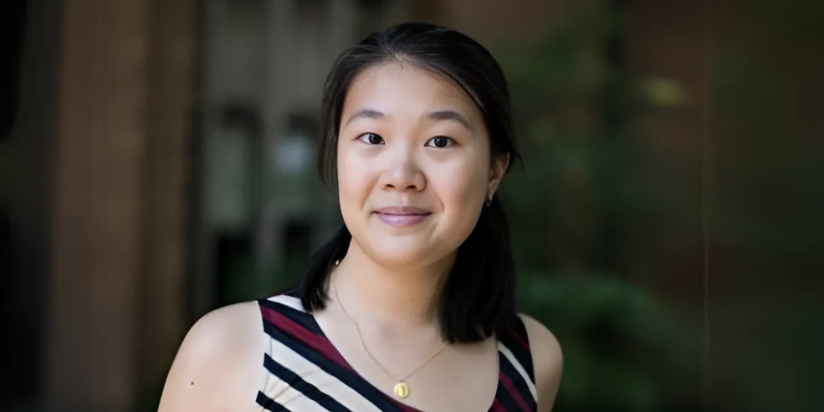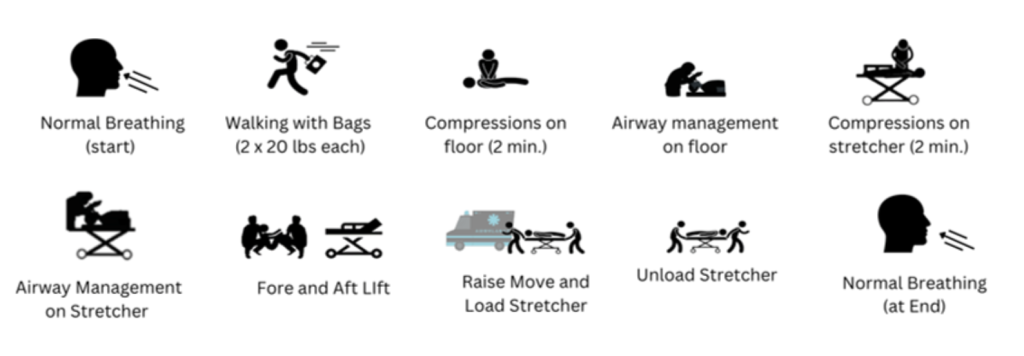
Graduate Studentship Award recipient investigates protectiveness of respirators for emergency service workers during workplace associated tasks
By Chloe Panganiban
Rachel Tyli is a fourth year PhD student in the University of Toronto’s (UofT) Department of Laboratory Medicine and Pathology. Supported by an Institute for Pandemics (IfP) Graduate Studentship Award, Tyli’s thesis studies how respirators fit emergency service workers (paramedics and firefighters) while they do simulated work tasks.

Image: (Top left, Bottom right) 3D scan of face with and without a respirator, (Top right) Fit test on a half-face elastomeric respirator, (Bottom Left) Simulated work fit test
Tyli holds a Bachelor of Applied Science in Mechanical Engineering from the University of Waterloo. With co-op experience in medical devices, she began working with her current thesis supervisor Professor James Scott (Dalla Lana School of Public Health) to build equipment to test respiratory personal protective equipment. Their work testing the filtration efficiency of different medical masks was featured on CBC marketplace for N95s and consumer masks.
This work then led her to enroll in the PhD program in Laboratory Medicine & Pathobiology. Her thesis involves an experimental study of 200 Ontario paramedics and firefighters to investigate respirator fit during simulated work tasks. The study emerged from the heavy reliance on respirators as protection against infectious bioaerosols during the COVID-19 pandemic, In Ontario, those who are mandated to wear a mask at work must undergo a respirator fit test. However, these tests are not rigorous—and therefore do not adequately test for emergency service workers’ more physically demanding workplace tasks like cardiopulmonary resuscitation or carrying persons. As such, respirators may fail in these scenarios, which puts emergency service workers’ protection and health at risk.
Within the study, participants undergo a 3D scan of their face with a respirator on and then perform a standard fit-test and simulated work fit-test. This evaluates leakages during tasks.
Tyli’s thesis has three current goals: (1) Looking at sex differences in respirator pass and fail rate, (2) Quantifying facial geometries using the 3D facial scan and seeing if any facial geometries lead to better or worse respirator fit, and (3) Looking at how respirator comfort is affected during the simulated work fit tests.

Image: Methods for simulated work fit-test protocol
Co-supervised by Professors James Scott, Tracy Kirkham (Occupational Cancer Research Centre), and Dr. Allison McGeer (Sinai Health), Tyli’s research is soon wrapping up the data collection stage. They have travelled to various services across Ontario to conduct the research and are looking for more emergency service workers (paramedics and firefighters) to participate in the study before the end of December 2024.
Aligning with IfP’s theme of pandemic readiness, Tyli hopes that this project will inform and improve respirator design and the standard for evaluating respirator fit for one of society’s most essential worker groups, especially in the event of another public health emergency or pandemic.
To learn more about this research project, visit: https://www.occupationalcancer.ca/project/respirator-fit-testing/
